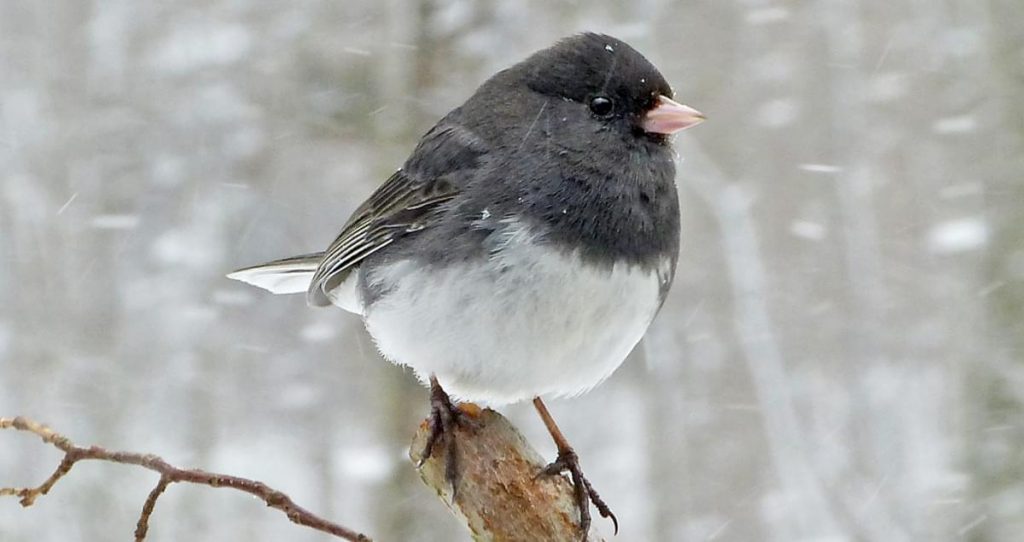
Little flocks of late winter birds have moved into the neighborhood and visit our feeder – 30 or more at a time – red polls, juncos, purple and gold finches are joining the usual year-round varieties. During the latest snow storm, the tangled, barely domesticated hydrangea stalks that grow against the east wall were full of juncos. The dried flower heads functioned as umbrellas. Wild grape vines that wind around three sides of the porch were sheltering finches. So were last summer’s wild raspberry canes that didn’t get cut back. The parsonage back yard is my favorite place on the property. I have plans every summer for small improvements, moving plants to a better spot, neatening up the various overgrown areas, making it gorgeous. And it never is. Improvements in one aspect mean other areas are neglected. Snow always falls before I’m ready – certainly before the clean-up and cut-back has taken place. I look through garden magazines and websites with awe and envy at the beautifully managed chaos, uniformly lush summer lawns and neat, intentional winter scapes. None of them have standing dead clumps of weeds and flower stalks.
But the juncos and finches seemed pleased to have found shelter near the feeders. Birds continue to pick the wild grapes and nip at them to get to the seeds. If I had gotten all my backyard clean-up done, I would be the only one to appreciate the well groomed orderliness. The juncos would be roosting somewhere else.
All of this is to say that perfection depends on one’s perspective. I could (hypothetically) mow every weed and spent plant to the ground, spread weed killer, clip the hydrangeas back to a few inches, and thin the grapevines every fall. It would look better to my magazine-trained eye. But what does perfection look like to the critters who actually live in my back yard?
This is a simple-minded example of the spiritual practice of perspective – always seeking a larger view. Perspective is aided by questions: Who benefits from this attitude, action or policy? Who will be hurt?
We as communities, cultures, and nations pay the price for narrow perspectives, for not asking the second question, especially. Cultural and racial sensitivity, environmental sustainability, financial well being are spiritual issues. How we address the two questions and adapt our attitudes, actions and policies for the sake of those who are hurt by the status quo are indicators of our spiritual health. Jesus’ arguments with the Pharisees and scribes concerned their narrow perspective. The religious leaders excelled in knowledge of the law. But they failed to understand the purpose of the law. Acting out of love for God, they neglected to love their neighbor. The law was given for life, for living with one’s neighbor, for sharing the love and provision of God with those not as well positioned.
In this polarized, antagonistic age, a spiritual discipline of expanding our perspectives, seeking with empathy the viewpoint of those who may be hurt by our actions, attitudes and policies would be a meaningful practice to take up for the 40 days of Lent – and beyond.